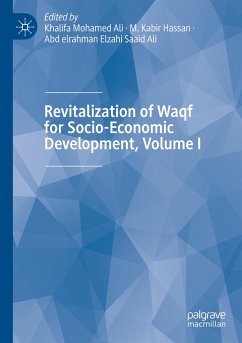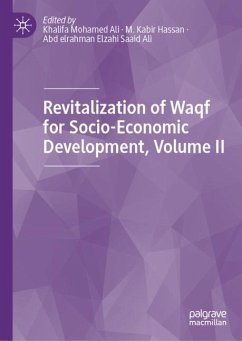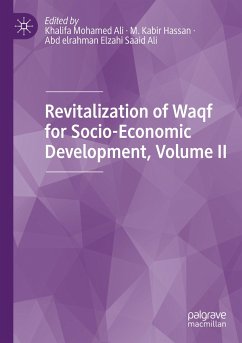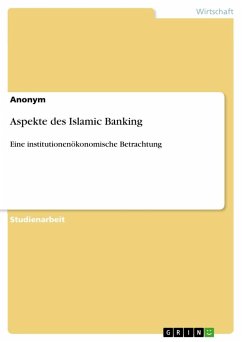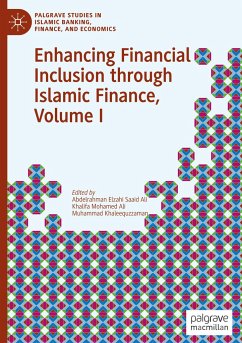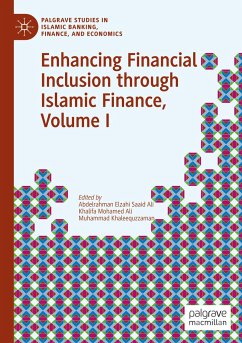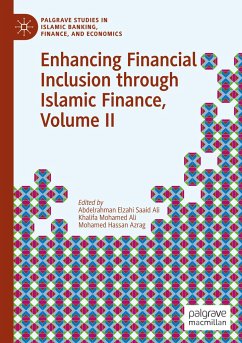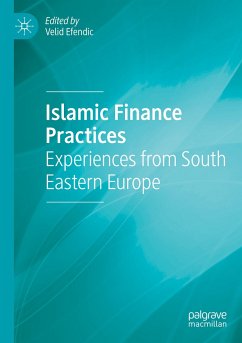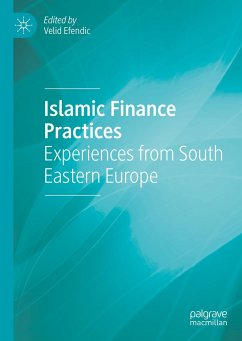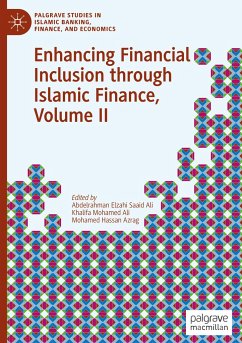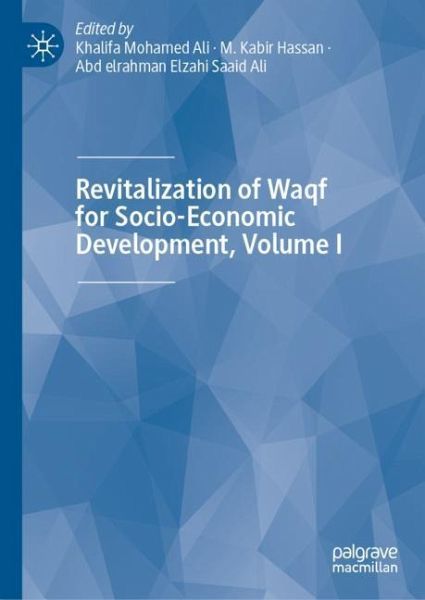
Revitalization of Waqf for Socio-Economic Development, Volume I

PAYBACK Punkte
65 °P sammeln!
This book explores the various aspects of Waqf management in IsDB member countries/jurisdictions as well as in non-Muslim majority countries. Topics covered include Waqf regulation, its modernization and relationship to Maqasid Al-Shari'ah; performance of Waqf activities; time and activity-wise distribution of Waqf resource management; the antecedents and consequences of Waqf assets (both physical and cash); the strategies and models to promote Waqf-related activities for greater socio-economic development; good governance practices through the formulation of informed policies for Waqf project...
This book explores the various aspects of Waqf management in IsDB member countries/jurisdictions as well as in non-Muslim majority countries. Topics covered include Waqf regulation, its modernization and relationship to Maqasid Al-Shari'ah; performance of Waqf activities; time and activity-wise distribution of Waqf resource management; the antecedents and consequences of Waqf assets (both physical and cash); the strategies and models to promote Waqf-related activities for greater socio-economic development; good governance practices through the formulation of informed policies for Waqf projects; the confluence of Waqf, zakah, charity, and Islamic microfinance impacting socio-economic development and so on. Comprising different issues and perspectives adopted by various authors/researchers, the book is specifically designed to meet the needs of academics and industry practitioners in the field of Islamic finance to provide general and Shari'ah guidelines on the emerging issueswithinthe subject.





